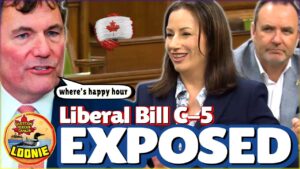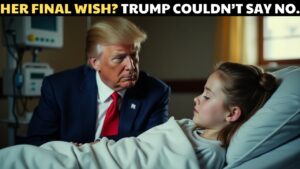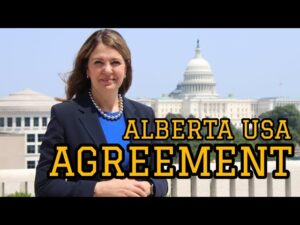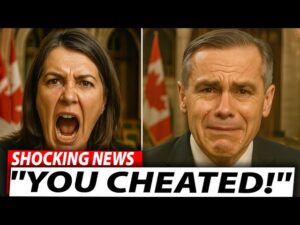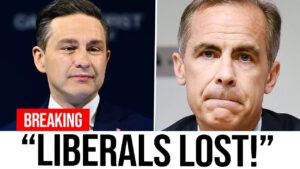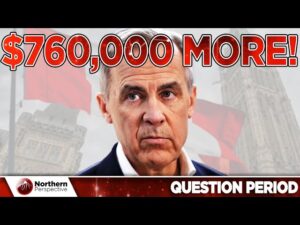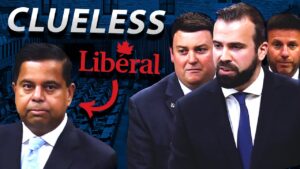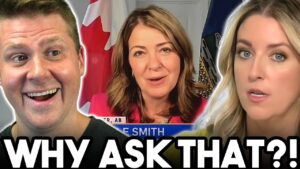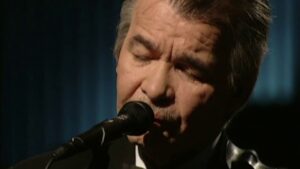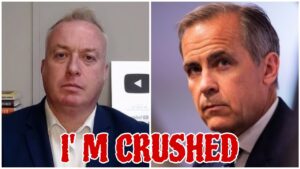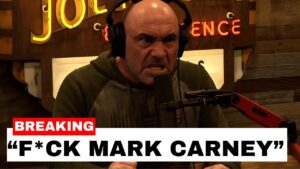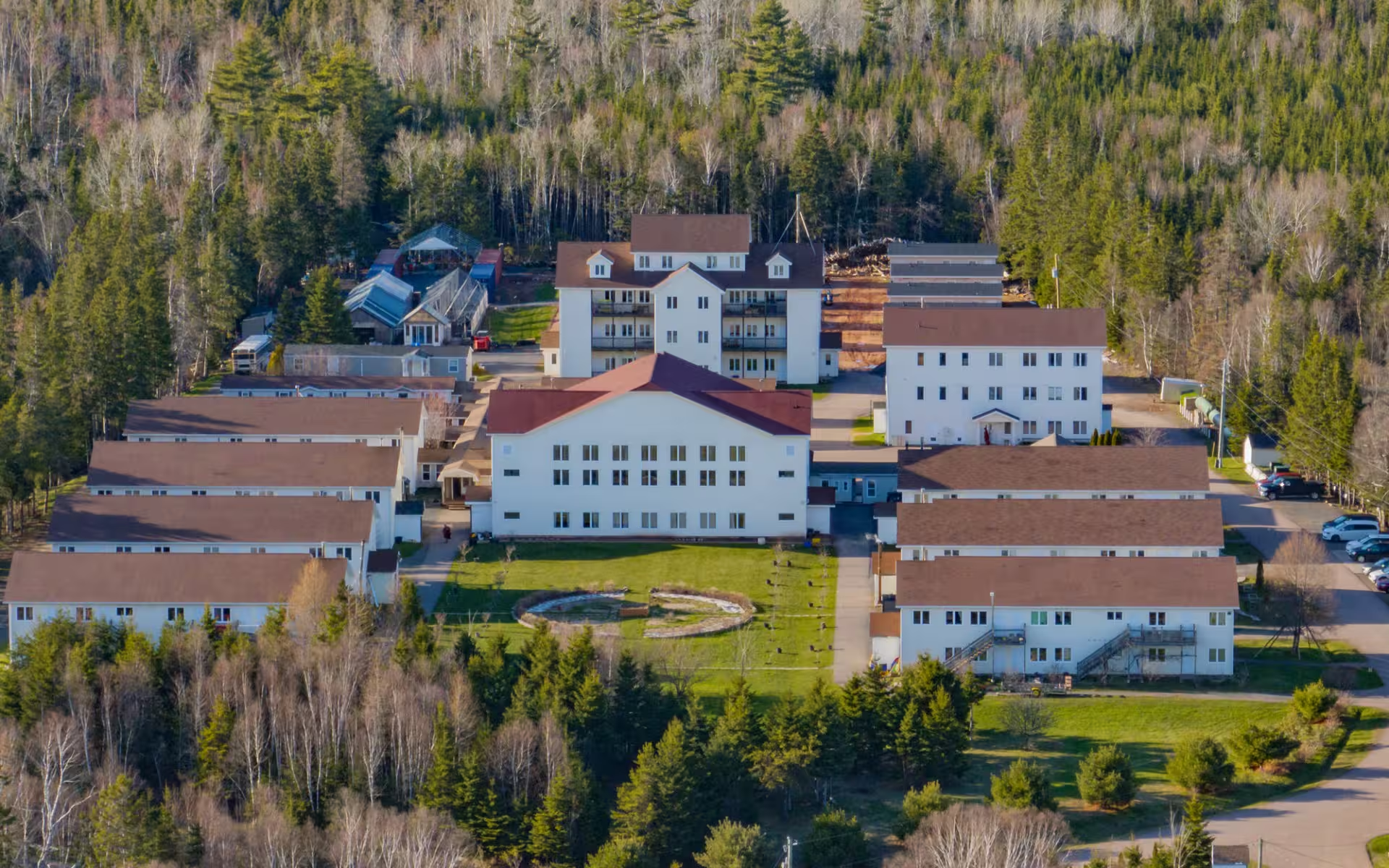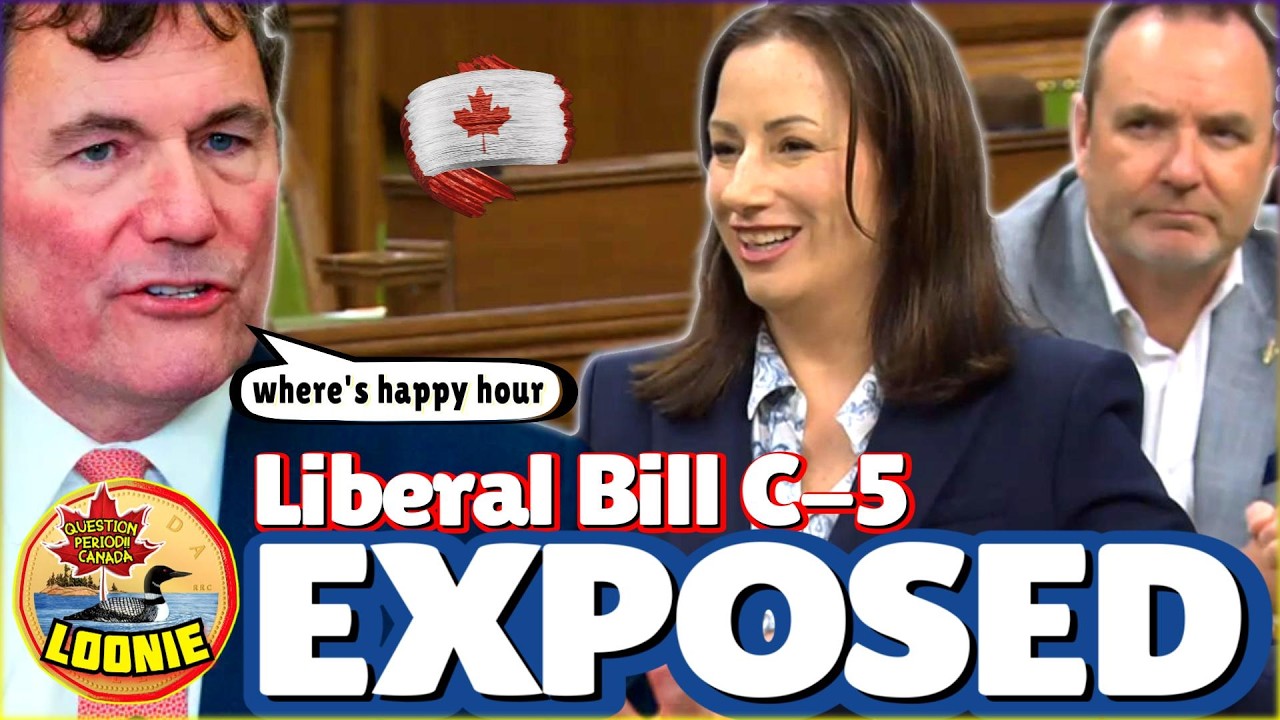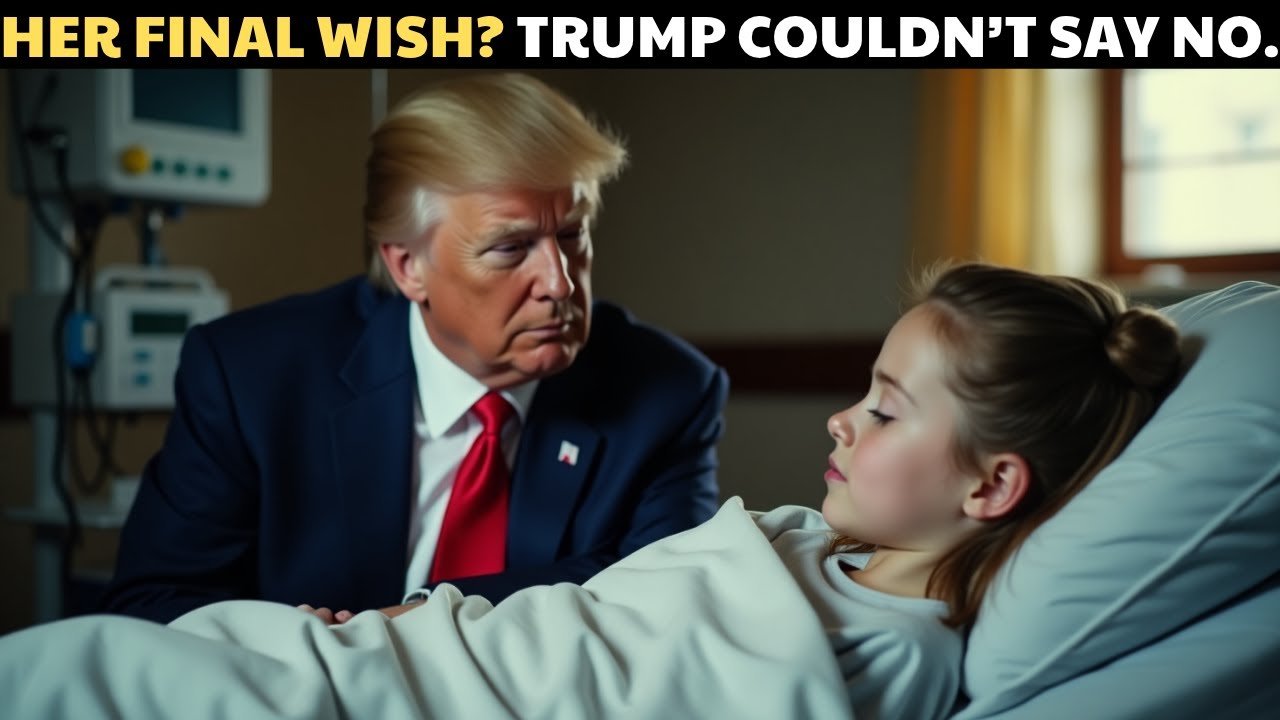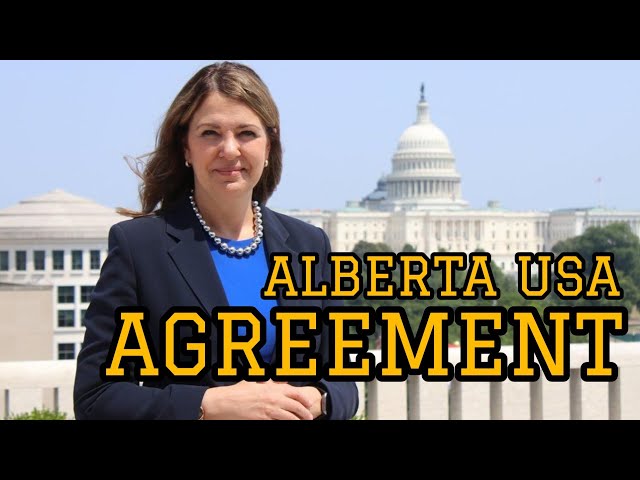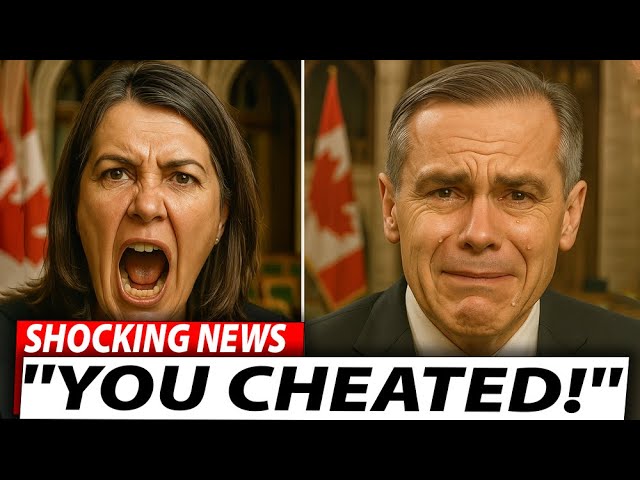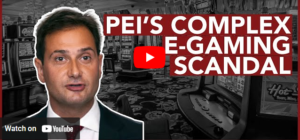Canada’s top pollster David Coletto of Abacus Data recently revealed why he believes the polls are wrong and have been wrong throughout the entire election campaign.
Candice is joined by Juno News’s in-house pollster David Murray to discuss.
Video Transcript:
(00:00) Mark Carney, Trudeau’s moneyman, globalist, China’s pal. Weeks in, he jets to Beijing, scores a $250 million loan from their state bank. 11 MPs tied to Beijing. Carney’s crew says nothing. Selling us out. Foreign cash. Secret deals. Carese Canada. Hi, I’m Candace Malcolm and this is the Candace Malcolm Show.
(00:36) So, one of the things that we have done for you at Juno News is we have provided our own polls throughout the election campaign. I don’t trust the legacy media. I don’t trust their polls. And so, for that reason, we decided to hire one of the best polling companies in the country to do our own polls. We did things differently.
(00:54) One of the key things that we did differently is that we asked a neighbor poll. So, we asked Canadians who they think their neighbor is voting for, which really helped us understand where the momentum was, right? Like what are people saying in coffee shops? What are people saying around the dinner table? What how many signs are you seeing? What what’s happening in your neighborhood? And what the neighbor poll has shown throughout this campaign is that the conservatives are winning.
(01:15) So, contrary to the legacy media, their idea that the liberals have had this huge lead throughout the campaign, our polls have said something different. Today we have the final exclusive poll from Juno Polls and it shows a dead heat folks. 3939. This is going to be an incredibly close election.
(01:36) It will all come down to election day and who has the better ground game, who has more volunteers, who has more enthusiasm in getting their voters to the polls to vote vote for the candidate. And it is just incredibly important that everybody who can gets out there and volunteers and helps if you want change in this country. So to talk about this poll, go through line by line what the poll found.
(02:01) I’m pleased to be joined by David Murray. David has been our in-house pollster for the campaign. He is an executive at One Persuage, which is a polling company in Ontario. David, thanks so much for joining us. Good to be with you. Okay, so uh why don’t you give it to us? What is the top line from the poll this week? Top line this week is conservatives and liberals and dead heat at 39%.
(02:22) NDP at 10, Greens at three and BLqua at 8. Other parties are at two. Two. So 3939 literally a tie. And just maybe explain how this has shifted uh over the course of the campaign. Like where were we at the beginning? How have things changed to get to where we are here the last week? There’s been uh a a not a ton of movement, but what we’ve seen overall is a tightening over the course of the election.
(02:49) Uh you’ll recall even a few weeks ago, we had the the Liberals ahead by over eight points. We were showing this basically all the other pollsters were showing this and everyone seems to be consistently coming together and saying that things are really getting tight throughout the entire country. Well, I want to jump to David KTO. I believe that David KTO is one of the best, if not the best, pollsters.
(03:11) Yes, he’s part of the sort of legacy media click and uh he frequently is featured on Legacy Media. Uh but he is he’s fair. He’s down the middle. He actually I was telling this to my producer, he used to work with me at the Sun News Network. So way back at the very beginning of his career, my career, uh he was a young pollster at Sunne News Network, which means that he’s not, you know, if he’s willing to work at Sun, he’s not totally in the bag for the left.
(03:34) Um he has a very interesting perspective here. I want to show a tweet or a post on X that he wrote. He he he wrote this question. First of all, to go from a 15point liberal lead a month ago to a 2.1 today is pretty remarkable. If you believe this, then you have to believe that one, the Liberals have run a horrible campaign, and two, the Conservatives have won an amazing campaign.
(03:57) You could tell that there’s some sort of skepticism in his this idea capturing the same thing that our poll captured, which was that almost all the pollsters don’t see this. You know, a month ago, they had Carney up as much as 15 points, which I don’t really believe. Uh to to just, you know, for them it’s a two-point lead for the Libs.
(04:14) For us, it’s a tie. And then he further elaborated on this and he wrote um point blank, I don’t believe the Liberals led by 15 points at any point. six to eight max. So here you have an established mainstream pollster, one of the most if not the most trusted pollster in the entire country saying that the polls are wrong, that he does not believe the polls.
(04:40) I had Ezra Levant on my show earlier today. He pointed this out to me and I’m going to point out to the audience because it’s so interesting just to elaborate on this. So David KTO basically just said that he doesn’t believe that this is right. He he writes, “What if the liberals never really led by 8 to 12 points and it was just response bias?” Right? So what is response bias? Ezra Levant replied and says, “Holy smokes.
(05:05) ” He asked Grock, the AI tool on X, what is response bias in polling? And this is what Grock said. Response bias and polling is when participants answers do not reflect their true opinions or behaviors, skewing the results. this can happen when and then names a number of factors like social desiraability. So just bear with me here.
(05:28) I think that there was a point in the campaign where the legacy media and all of the fancy people and all of the elites in Canada were saying elbows up folks. We have to bring in the liberals again to protect us from Donald Trump. And that was sort of like the zeitgeist, the overwhelming almost like COVID level group think that was being pushed on Canadians.
(05:48) And many of them kind of just went along with it even though they didn’t really believe it. Even though in their heart of hearts they still wanted change. They wanted something different. They believed that it’s time for a new government, a new party. And so their intentions were always to vote conservative, but they told pollsters that they were part of the elbows up crowd, part of the liberal movement.
(06:09) And so that is why that I I sort of reading between the lines. I believe that’s what David KTO is saying which shows that even the pollsters themselves that are conducting these polls don’t believe that the liberals actually held that level of uh lead. What do you think David? I think this also points to a methodology of using the neighbor poll as well because there’s always a phenomenon that we’ve known about for a very long time called shy tory uh where uh people are more reluctant to personally admit that they are actually voting conservatives than
(06:35) compared to other more quote unquote socially acceptable parties. Um uh and David is an absolute professional uh completely respect his work. He’s also very noticeably on uh very recently he also did a an issue set uh scan as well and really noted how the sh how the race in and of itself has shifted over the course in terms of uh actual issues that are brought forward.
(07:00) So it was at the very beginning when everyone was showing Carney uh quite far ahead uh it was very much focused on Donald Trump like literally trumping all other issues. But as time has gone on as uh uh M President Trump has been a little bit more quiet on the scene. Uh you’ve seen that issue set shift away more towards cost of living to housing to public safety all these core issues that Mr.
(07:25) Polyv has been talking about at great length. So, um I I agree that I don’t think that the uh Liberals were ever 15 points ahead. I I I think that that is certainly a stretch, but I think this also goes back to my earlier theory from a few episodes ago where there’s a difference between Mark Carney the idea and Mark Carney the actual person.
(07:44) So the idea of a an economic manager, a central banker being uh quote unquote steady hand at the wheel uh is quite different from the actual Mark Hernie that’s been presented to Canadians over the course of the last few weeks. So I think as Canadians continue to reconcile that, I think that also explains uh a lot of the movement that we’ve been seeing uh in these polls.
(08:05) I talked about this after the debate. I think that anybody who watched the debate that the entire narrative that legacy media has been trying to promote that this is an election about Trump that Trump is a existential threat to Canada and that the only party that can save us from Trump is the most anti-American party. That whole narrative just went out the window if you watch the debate because I give Steve Pacin, the moderator, a lot of credit for steering the debate, the content of the debate, the questions around actual issues about Canada, like
(08:33) the cost of living, the public policy issues made by the federal government. That is what we’re voting on. We’re voting on who is the best manager of the federal government, not like some, you know, who who can summon the courage about, you know, this voodoo spirit that’s coming at attacking us from the south. Like that that’s all nonsense.
(08:49) Um the question of this campaign is really about who will be the best government, who will be the best manager of Canada. Anyone who watched watched the debate knew that that Trump line just didn’t stick. It just didn’t work. And that the the more the debate went on, the more the questions just became about again cost of living, housing, taxes, regulation, how can we grow our economy, how can we stop the slumping economy, etc., etc. Rightly so.
(09:14) And I just just one more tweet from David Cleto and then we’ll get back to our exclusive poll. Uh but he talks about how the framing of the election really matters. So this is one more post from X. He said that the campaign is evolving in the way that voters are framing the ballot question. At the end of March, more Canadians said that they would cast their vote based on which party could best handle Donald Trump and his impact on Canada.
(09:34) But in our most recent surveys, it’s flipped back. And so if you just look at this screenshot, this frame, the first column here, the red numbers are the people who are putting Trump first. Like that’s what their main ballot box question. the last week of March, 54% of Canadians said that that was a top issue versus 46 who said it’s about who could best change the direction of the country.
(09:55) Uh that has completely flipped. So over the five weeks of the campaign, it went from 54% looking at Trump, 46 looking at change, and then you can flip that. So 44% now at Trump, 56 now uh about change. if you switched it and changed it to Trump versus the cost of living. Um, so at the beginning of the campaign, 58% of the people said cost of living, 42% said Trump.
(10:19) Now, five weeks later, 64% say cost of living. Only 36% say Trump when it’s compared to those two issues. And then the third question was who has a better plan for the economy? It whether that’s going to be the thing you vote on or again Donald Trump. the beginning of the campaign it was 53% said grow the economy 47% said Trump and now that’s 50 59% say so and and then 41% say Trump so 59% say grow the economy 491% Trump so no matter which question it is the Trump issue has declined in its importance and the other issues have grown so whether or not it’s
(10:57) actually a 10 point swing away from the liberals or maybe just a 10 to 15 point swing away from Trump being the balance Fox question. What What do you think of this? I I think that while the importance of the Trump question has certainly degraded over time uh over the course of the campaign, I think it’s still definitely in the top three or four issues for for a lot of Canadians.
(11:19) And so with that shift, with it not being the beall endall only question that you’re voting on, people are uh being more receptive to the messages of building economic resiliency in this in this country. uh so that we’re not exclusively dependent on the United States for our own prosperity, looking for new trade partners, increasing our own prosperity uh through regulatory reform, getting more resources to market, getting them out of the ground, uh making Canada have the wealthiest middle class again like it did back in
(11:50) 2015 when Harper was prime minister. Uh so yes, the issue set is changing. Yes, Trump is still part of the equation. I don’t think anyone is is saying otherwise. It’s just the magnitude and impact that he’s having on the individual voters has certainly had a noticeable decrease over the last four weeks. Okay, let’s go back to our poll.
(12:10) So, like we said off the top, 39 39. Wow, that’s close. Uh, first of all, how would that translate into seats because I’ll I’ll just I’ll just go to this. So if you look at the last three elections, the last two elections in 2021, the final on election day, the final vote count had the Liberals at 33%, conservatives at 34, NDP at 18, block at 8.
(12:35) Okay, so in 20 that was 2021. 2019 had the Liberals at 33% again, Conservatives again 34%, NDP at 16, block at 8. And if you go back to 2015 when Justin Trudeau won a huge majority government, one of the biggest majority governments uh in my lifetime, the Liberal Party finished at 39%. The Conservatives finished at 32, the NDP at 20.
(13:03) So 39 is the big majority government for the Liberals and that is what they’re pulling at now. Remarkably, the Conservatives are also pulling at 39. So polling higher than they have at any point in the last 10 years or or at any point on election day, higher than than the last 10 years and yet they could still potentially lose the election.
(13:20) Uh walk us through that please. Sure. So our seat model based on all these numbers has the Liberals winning 175 seats, the Conservatives 130, Bluqua at 32, NDP at four, and Greens at two. So this would actually despite both being tied at 39 result in a liberal majority government and the reason for that is the complete collapse of the NDP.
(13:47) Like Jagme Singh is not even going to win his seat in this model and even the public models like what uh Jimmy Forier at 338 has is saying the exact same thing like this is a very uh different election compared to anything we’ve ever seen before. Wow. I I mean it’s so it’s so mindboggling, David, to to imagine the conservatives could get 39% of the votes and still not even get not even hold the liberals to a minority that that they could be 39% in a liberal majority.
(14:14) I think there would be some kind of a revolt on our hands if that happens. Like conservative voters would be very unhappy uh if that were the case. Let’s go to the regions here because this is super interesting. At one point, I believe we had the Ontario had like a 10-point lead for the Liberals. They’ve all but closed that up.
(14:31) So, let’s let’s walk through the different regions. Starting with Ontario, actually with Ontario, three weeks ago, we had it at a 14-point Liberal lead. Then it was an eight-point lead. Then it was last week it was a four-point lead. Now, it is a onepoint lead. We’re seeing a major shift. And actually, when you look at the change from last week, it’s not that we’re gaining support.
(14:50) It’s that the Liberals are losing support directly to the NDP with these numbers. So, the Liberals would actually be down three points compared to last week with the NDP up two and the Greens up up one as well. On to Quebec. This is also very interesting. The Conservatives would be at 25%, Liberals at 34 and the BL Kebbequa at 34.
(15:09) Uh so this actually represents compared to last week a 6oint increase for the conservatives. This is actually quite a substantial change. Uh minus1 and minus1 for Bibqua and uh Liberals respectively. But we also see a decline in the other like third parties uh which is actually what’s uh bolstering the conservative rise.
(15:31) Um the other uh region that we’re actually seeing some some significant movement in is actually Atlantic Canada where the Liberals would today uh get 51% of the vote. Conservatives 33 and the NDP get 11. Now the change in that is the Conservatives actually gained six points compared to this time last week and the Liberals would lose four.
(15:52) the Greens would actually lose three. And what would that would that still be a liberal sweep of Atlantic Canada or would that mean that the Conservatives would possibly pick up seats in that region? Um, so in Atlantic Canada, this would actually result in seven seats, which would actually be the status quo for the Conservatives.
(16:09) Okay, let’s move on to uh the Prairies and BC. So in the Prairies, we’re seeing the Conservatives uh sit at 30 uh sorry at 54%, the Liberals at 33, and the NDP at 8. Um, so this change actually shows four-point gain for the Liberals and a one-point decline for uh for the Conservatives. Uh, also other parties are down by three points as well.
(16:33) And in British Columbia, we’re seeing uh the Liberals take the lead with 40% of the vote. Uh, Conservatives getting 36 and NDP getting 15. Now, the change here is the Liberals actually gain seven, the NDP lose seven, and the Conservatives lose three based on this. Interesting. It’s It’s interesting because I have seen some regional polls.
(16:53) There’s not a lot of riding polls that come out during elections probably because the sample size is so small. It’s so hard to get those accurate. Uh I’m talking about Vancouver Island North. I think Powell River is the name of the writing. It’s where our friend Aaron Gun is the conservative candidate. There have been heavy efforts to cancel Aaron Gunn for taking rather mainstream positions in like defending Sir John A.
(17:14) McDonald, the founding prime minister of our country. And yet despite the attempts to cancel him, I’ve seen a poll I think that has him pulling above 50% in his writing. So if there is s silver lining on this campaign, even if the conservatives don’t form a government, I think that having really strong new MPs, people like Aaron Gunn, but like Andrew Lton, who used to work at True North and uh is a longtime independent journalist, looks like he’s going to win his writing as well.
(17:41) So that might be a bit of silver lining. Okay, I want to talk about the two uh other questions that we asked in this poll. Uh the first was on the debate and whether or not it had an impact at all. So, let me just go through what we found. So, 27% of people said that they supported a party before the debate that they watched the debate, the debate had no impact on their support.
(18:03) So, they were going in a conservative, watch a debate, still support Pier Polyv, still going to vote Pier Polyv. uh 25% of people said that they supported a party before the debate and that the debate made them increase their support for their own party. So again, that would be like, I like conservatives. I thought Pierre did great.
(18:21) I’m even more likely to go vote for the Conservatives. Um this is where it gets interesting though. 3% of people said that they supported a party before the debates and the debates made them change their support. And another 3% said that they were undecided before the debates and that the debates made them choose which party that they supported.
(18:37) And then 6% uh or sorry 32% said that they didn’t watch the debate at all. So that might seem like really small and insignificant. 3% 3%. But when an election is this close like 3% will shift the entire campaign will shift the entire campaign. Well you one party could win a majority or minority based on a shift of just 3%.
(19:00) So really really kind of telling in my perspective. What did what did you think of that question and those responses? I think it’s also important to like if we grant if we zoom in on this on like a gender and age lens as well. I think it’s also important to say that that 3% actually uh grows uh especially among young people.
(19:17) You see them going in and they’re they’re they have an opinion about what’s uh party they support. They watch the debate. They either switch their vote or uh they become uh undecided. So regardless of what the actual end outcome is, they’re getting pride away from the existing uh from the existing party that they supported.
(19:37) And this is also interesting because if you actually compare that to ballot for males between the ages of 18 to 34 compared to last week, we saw a 10point decrease in support for the Liberals, which would back this up. Uh for females 18 to 34, we see a 2% decrease for the Liberals. Also a 2% decrease for the NDP as well. Uh, it’s also notable for the males 18 to 34 that the that the conservatives and the NDP both increased.
(20:04) Three for the Conservatives and four for the NDP off that. Well, that’s interesting. I think that that really just goes to show that it, you know, even though the debates did happen late, I wish they’ happened sooner. I wish that there was more debates. There should have been like five or six. They should have let the independent media have our own debate.
(20:18) Then they wouldn’t have had to complain about the fact that we got to ask questions at the leaders uh commission, the the government one. But I think that, you know, this election is really being fought at those small margins and I I think I think it did have an impact. Okay, final question for you here, David.
(20:35) Let’s talk about our neighbor poll. I’m so glad we did this. This is one of the things that Juno News did. I I don’t think I saw any other pollsters uh doing this campaign. And if it turns out that the Conservatives do win this election or perform above expectations, I think that we can really point to our neighbor poll to show how we were able to uh put our finger on something that no other polling company or no other media outlet in the country was able to do.
(21:00) So why don’t you walk us through the final neighbor poll? Sure. So net of those that said they don’t know how their neighbors are voting, we found that the top line 40% are supporting the believe their neighbors are supporting the conservatives, 38 believe their neighbors are supporting the liberals and 11% believe that their neighbors are supporting the new Democrats. Wow.
(21:19) So again, this this shows like people in their neighborhood people like what what kind of signs are you seeing? What are people saying when you bump into them at school pickup or school drop off or when you know around the water cooler at work or wherever it happens? I I I think that this does really show that there are more people interested in voting for the conservative than the polls pick up on.
(21:39) What do you think? Yeah, I think that that’s a very fair assessment. It’s also interesting when you break this down like in the region that actually moved the most out of all of this is actually British Columbia because the the difference, remember in the ballot question, we actually had the Liberals leading uh the Conservatives.
(21:55) When you ask the neighbor question, 44% of British Columbombians believe that their neighbors are voting for the Conservatives compared to 30 for the Liberals and 22 for the New Democrats. What’s also very interesting is also when you break out uh the prairies as well. So that like the original ballot question uh was 54% for the conservatives.
(22:18) However, that shoots up to 65% in the prairies uh when they ask about their neighbor uh compared to 22% for the Liberals and 10% for the NDP. So interesting. Okay. Well, David, we have one final interview that we’re going to do later this week where we are going to go through and this is going to be like nerding out really like for the uh data nerds and the people who really like like to do these kind of uh election predictions.
(22:45) Uh we’re going to talk about the specific writings that Polyv needs to win like what would it look like where in the country are their final efforts going where which are the writings that will determine election and it’ll be a very good guide for anyone who plans to watch the election. I I’m going to plug our election live stream on election night.
(23:03) Don’t watch the CBC on election night. Don’t give them your eyeballs. Don’t watch the CTV or Global. They’re all biased. They all hate conservatives. Watch us on YouTube. Myself, Kian Beexi, we have lots of special guests. We’re going to have our own decision desk. We’re going to have a lot of production value there.
(23:19) So, we I want to talk about the the writings to watch like early in the night where how we know which directions is going when the polls close in Atlantic Canada, which seats are we going to be looking at. We’re going to go through that all. So, watch out for that later in the week and I do hope that you will join us uh for last night.
(23:34) It’s going to be a lot of fun as well. All right, David Murray, thanks so much for joining us. I look forward to our final talk uh later in the week. Take care. All right, folks. It’s all the time we have for today. We’ll be back again tomorrow with all the news. I’m Candace Malcolm’s Candace Malcolm Show. Thank you and God bless.


